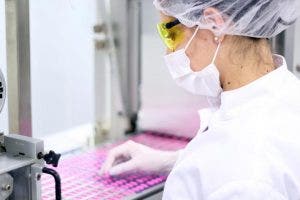Pharmaceutical project manager career profile: Salary, requirements and job description

Pharmaceutical project managers oversee drug development from start to finish. Their general responsibilities overlap with those of project managers in other industries. For instance, they identify any technical requirements, set timelines and budgets, oversee other team members and create reports. At the same time, they have specialized expertise in the life sciences and regularly collaborate with biochemists and other scientists on the creation of new products.
The typical pharmaceutical project manager has several years of experience working for biotechnology companies or pharmaceutical firms, along with a bachelor’s degree or higher in a relevant field such as one of the physical or life sciences. Other possibilities including business management, health administration, engineering and clinical research.
How can you pursue a career as a pharmaceutical project manager? Let’s look at some of the key requirements as well as what you can expect on the job once you get there.
Becoming a pharmaceutical project manager
The path to becoming a pharmaceutical project manager typically begins with earning a four-year undergraduate degree. The fields we mentioned earlier help provide the necessary scientific background for becoming a successful project manager with knowledge of the biochemistry behind drugs. Project managers are also expected to know about the manufacturing processes of modern drugs, which makes engineering expertise helpful as well.
Post-graduate degrees are also common in this profession. Some popular options for post-baccalaureate credentials include:
- Master of Business Administration (MBA)
- Master of Public Health (MPH)
- Master of Science in Project Management (MSPM)
For example, the healthcare-focused online MBA (HCMBA) from the George Washington University (GW) combines core studies in managerial topics directly related to project management ― e.g., finance and operations management ― with the flexibility to explore many different aspects of modern healthcare practice. HCMBA students at GW with an eye on a pharmaceutical project manager career might opt to focus their electives on the clinical research industry, global regulatory affairs or medicine development.
Hands-on experience is also necessary for landing a project manager position. Candidates should have a demonstrated ability to manage the scope, budget and quality of complex projects. They should also have knowledge of toxicology and other requirements for seeing a safe drug all the way through development and eventual regulatory approval.
What pharmaceutical project managers do
Above all, a pharmaceutical project manager is responsible for ensuring that drugs are developed on time, within budget and in line with all scientific requirements for safety and efficacy. Their day-to-day responsibilities may include:
- Managing key projects, stakeholders and personnel, such as biochemical engineers, researchers, scientists, healthcare consultants and physicians.
- Establishing and maintaining timelines for drug trials and ensuring proper, compliant completion of each one.
- Staying up to date on all applicable regulatory guidelines, like rules from the U.S. Food and Drug Administration.
- Keeping detailed records on the progress of research, trials and approvals from one phase to the next, in accordance with regulatory mandates and corporate governance rules.
- Evaluating the results of trials and in appropriate cases choosing to halt development due to safety concerns, inefficacy or side effects.
Experienced project managers may take on additional responsibilities beyond these core competencies. Overall, the role requires a mix of “hard” and “soft” skills. Pharmaceutical project managers need to not only be experts in topics such as drug toxicology, but also adept communicators with good financial acumen. Keeping a complex drug development project on track requires managing many different moving parts and often responding to sudden changes, making a versatile skill set essential.
How much do pharmaceutical project managers make?
The most detailed salary data for pharmaceutical project managers comes from aggregator PayScale. It estimates that the average person in this role makes more than $93,000 per year, with an additional $9,522 in bonuses and $4,880 in profit sharing, as of April 2020.
At the 90th percentile, pharmaceutical projects managers make $123,000 annually. Even at the 10th percentile, their yearly pay of approximately $60,000 is almost identical to the median wage for all occupations in the U.S.

Pharmaceutical and biotechnology companies are the primary employers of these project managers. Although PayScale doesn’t offer projections for the total employment of pharmaceutical project managers in the near term, the long-term increase in demand for healthcare services and the aging of the population in the U.S. and other countries should sustain the need for new drugs and therapies. Accordingly, pharmaceutical project managers may have promising career prospects going forward.
The GW HCMBA can prepare you for a career as a pharmaceutical project manager and other in-demand roles such as healthcare consultant. Learn more by visiting the program overview page today, where you can download a copy of our brochure.